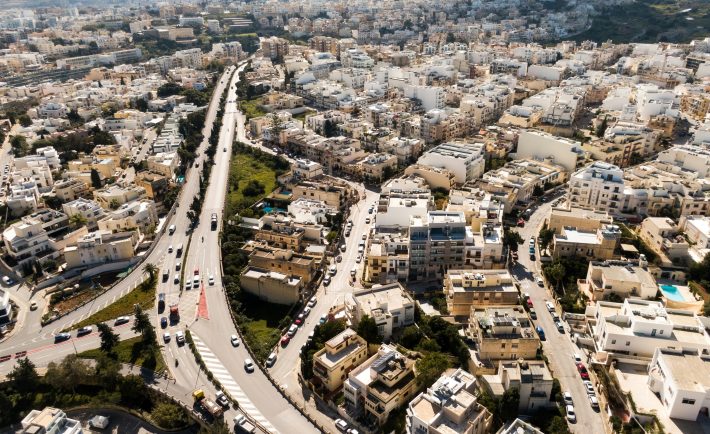
Malta has become an attractive destination for foreign entrepreneurs. It has several investment immigration programs, including the Malta Permanent Residence, but only some support business investment. Additionally Maltese tax system includes special regimes and it is important to navigate it correctly.
Julia Loko, an investment programs expert at Immigrant Invest, presents a corporate taxation guide to Malta.
Corporate tax rate in Malta
Malta’s standard corporate tax rate is 35%. However, this rate is subject to various tax refunds and exemptions.
One of Malta’s most appealing features is its full imputation tax system, which allows shareholders to claim a refund on tax paid by the company. This results in an effective tax rate that can be as low as 5%. The system includes:
- 6/7 refund: for trading companies, shareholders can claim a 6/7 refund of the 35% tax paid by the company; this results in an effective tax rate of 5%;
- 5/7 refund: for passive income, such as royalties and interest, shareholders are eligible for a 5/7 refund; this results in an effective tax rate of 10%;
- 2/3 refund: for income derived from double tax relief, shareholders can claim a 2/3 refund, depending on the type of relief claimed; these refunds are issued within 14 days after the tax is paid.
Participation exemption
Malta offers a participation exemption regime. The regime allows companies to benefit from a complete tax exemption on dividends and capital gains derived from qualifying holdings. To qualify, the company must meet certain criteria:
- holding requirement: the company must hold at least 5% of the equity shares in the subsidiary;
- ownership period: the holding must be maintained for a minimum of 183 days;
- non-resident subsidiary: the subsidiary must be non-resident in Malta;
- passive income test: if the subsidiary is located in a low-tax jurisdiction, it must pass a passive income test, proving that at least 50% of its income comes from trading activities.
If these conditions are met, the income derived from the participation is exempt from tax in Malta.
Double taxation relief
Malta has established double taxation treaties with over 70 countries. This provides relief from double taxation in three ways:
- Tax Credit. Malta provides a credit for foreign tax paid on income.
- Tax Sparing. This is available for certain types of income, such as dividends and interest, allowing companies to benefit from tax sparing credits.
- Exemption. Income that has been taxed abroad may be exempt from tax in Malta.
The aim is to avoid taxing the same income twice, thus reducing the overall tax burden on companies.
Tax incentives for holding companies
Malta is a suitable jurisdiction for holding companies, especially those engaged in international business activities, due to various incentives, such as:
- no withholding tax on dividends, interest, or royalties paid to non-residents;
- no capital gains tax on the sale of shares in a Maltese holding company, provided certain conditions are met;
- no inheritance tax on the transfer of shares in a Maltese holding company.
Group relief
Malta provides a group relief system that allows companies within the same group to offset losses against profits. The main features of group relief include:
- qualifying group: companies must be at least 90% owned by the same parent company;
- loss carry-forward: losses can be carried forward and offset against future profits within the group;
- cross-border losses: losses from foreign subsidiaries can be offset against profits of Maltese companies, subject to certain conditions.
This system reduces the overall tax liability of the group, making it advantageous for multinational companies.
Tax benefits for intellectual property (IP) and research and development (R&D)
Malta offers tax benefits for companies involved in IP activities, including technology, pharmaceuticals, and other IP-intensive industries:
- Patent Box Regime allows a reduced effective tax rate of 5% on qualifying IP income, such as royalties and licence fees, linked to R&D activities in Malta.
- R&D Tax Incentives provide tax credits of up to 25%—45% and enhanced deductions of up to 150% for qualifying R&D expenditures.
Additionally, companies can claim capital allowances on IP assets, typically amortised over 5 years (20% per year), reducing taxable income. Malta also benefits from no withholding tax on royalties and an extensive network of double taxation treaties, enhancing the overall tax efficiency for IP-related activities.
Value-added tax (VAT)
Malta’s VAT rate is set at 18% for most goods and services. There are certain reductions and exemptions, including:
- zero-rated exports: exports of goods and services outside the EU are subject to a 0% VAT rate;
- exemption for financial services: financial services, including banking and insurance, are exempt from VAT;
- reduced rates for tourism: certain tourism-related services, such as accommodation, are subject to a reduced VAT rate of 7%.
Special regimes for specific industries
Malta has special tax regimes for certain industries, offering additional tax benefits. For example:
- aviation: companies involved in aircraft leasing and finance benefit from exemptions on VAT, customs duties, and stamp duty;
- shipping: Malta’s tonnage tax regime offers reduced tax rates for shipping companies based on the tonnage of their vessels;
- gaming: Malta is a global hub for the online gaming industry, with tax incentives and reduced compliance costs for licensed operators.
Personal tax advantages for shareholders and employees
Malta’s personal tax system also offers benefits for shareholders and employees of local companies.
Non-domiciled residents in Malta are taxed only on income remitted to Malta. Foreign-sourced income that is not remitted to Malta is not subject to Maltese tax.
Expatriates working in certain sectors can benefit from a flat tax rate of 15% on their income.
Foreign pensions received by non-domiciled residents in Malta are exempt from Maltese tax, provided they are not remitted to Malta.
How to register a business in Malta
The process of registering a company in Malta usually takes 1—2 weeks. Before the registration, a company must get an office in the country.
Choose the company type. Decide on the form of your legal entity. The most common types are a closed company with limited liability, a partnership with unlimited liability, or a limited liability partnership (LLP). Each type has different levels of liability and structure.
Register the name. Make certain your company name is original, non-offensive, and reflective of your business. You may need to prove the right to use specific words, particularly in regulated industries like finance or insurance.
Prepare the documents. Key documents include the company’s memorandum of incorporation, information about the registered address in Malta, and details about directors, shareholders, and the company secretary.
A minimum share capital of €1,250 is required, with at least 20% deposited in a local bank during registration.
Submit the application to the Malta Financial Services Authority (MFSA). Pay the registration fee, which varies based on the company’s declared share capital. Once the documents are verified, a Certificate of Incorporation is issued, allowing the company to operate legally.
Obtain required licences. Depending on the industry, you may need to apply for specific licences from the Commerce Department. Fees for these licences vary annually.
Open a business bank account. Choose a bank in Malta and prepare the necessary documents, including the Certificate of Incorporation and ID for company shareholders.
Comply with tax and social contributions: Companies in Malta are subject to corporate tax, which can be reduced through various exemptions, VAT, and social contributions based on employee wages.
How to get a Malta residence permit as a remote worker
The Maltese residency for remote workers is provided via Nomad Residence Permit. It is designed specifically for those employed by foreign companies or self-employed professionals who wish to live in Malta while working remotely. To qualify, applicants must meet the following key requirements:
- Income threshold. Applicants need to demonstrate an income of at least €3,500 per month from remote work or freelancing. The total annual income must be at least €42,000, and applicants must provide an employment contract or a service agreement that covers a minimum of five months.
- Proof of accommodation. Applicants must submit proof of accommodation in Malta, which can include a rental agreement or a booking for temporary housing such as Airbnb.
- Health insurance. Comprehensive health insurance that covers the entire duration of the applicant’s stay in Malta is mandatory.
The permit is initially issued for one year and can be extended as long as the applicant continues to meet the eligibility criteria. Family members, such as spouses, partners (both opposite and same-sex), and dependent children, can be included in the application without any additional income requirement.




